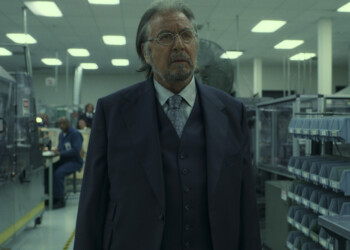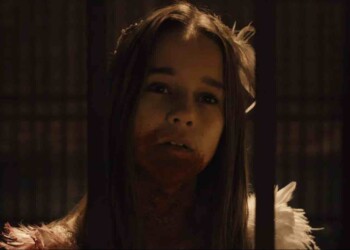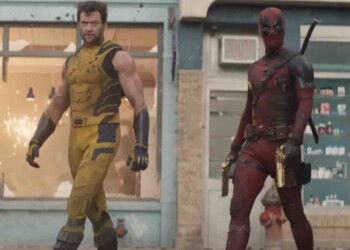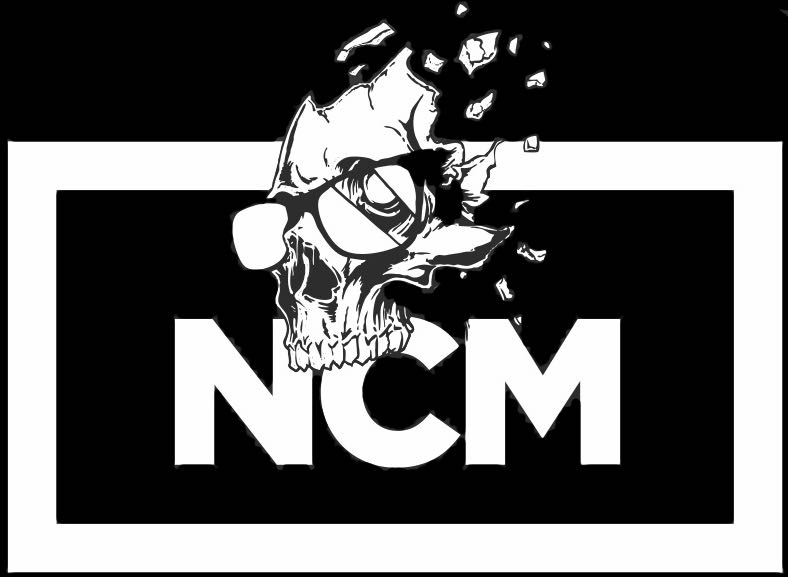In the “Better Call Saul” series finale recap, Saul Goodman, Gene Takavic and Jimmy McGill’s journey finally comes to a close…
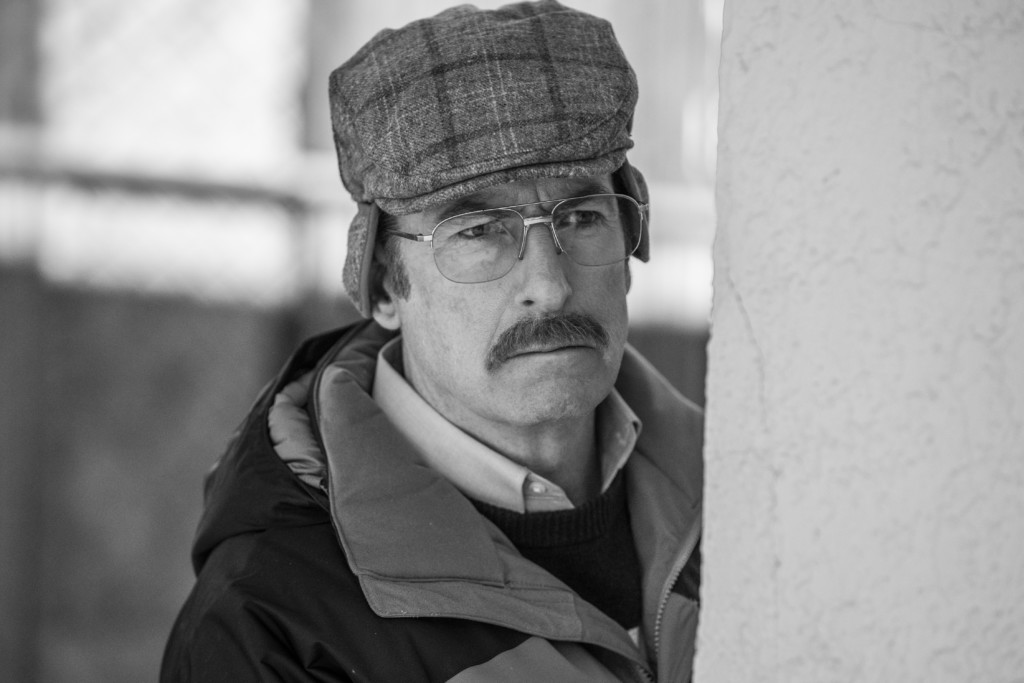
By Damon Martin — Editor/Lead Writer
The end has finally arrived for “Better Call Saul” and by extension what is likely closure for the entire “Breaking Bad” universe.
It’s hard to imagine how a prequel could somehow outlast its predecessor but “Better Call Saul” existed for six total seasons while “Breaking Bad” ended with five but both shows will likely go down as two of the greatest series in television history with a pair of series finales that couldn’t be more different.
While Walter White exacted revenge on the people who wronged him as he went out in a blaze of glory, Saul Goodman was never going to reach his conclusion in remotely the same way. In fact, Saul Goodman was largely defined as a man who could talk himself out of anything, which was exactly how his story ultimately came to a close.
There was no trunk rigged with a machine gun and Saul certainly didn’t lace anybody’s Stevia with ricin but he still faced down all of the misdeeds he had committed even if it took him until the last possible moment to finally realize that there was no redemption without confession.
The crux of “Better Call Saul” for the majority of six seasons was showcasing the battle between the man Jimmy McGill could have been and then one he ended up being — a morally bankrupt con artist who wanted nothing more than to make piles of cash no matter who got hurt along the way. The evolution of the character was often times heartbreaking, especially when you go back to earlier seasons and witness just how much Jimmy’s precipitous downfall was at least in some part thanks to his brother Chuck pushing him closer and closer to the edge.
Of course as despicable as Chuck McGill was as a sibling, he didn’t make every choice for his brother because Jimmy was more than capable of going the wrong way on numerous choose your own adventure schemes.
Still, knowing that hapless, backroom nail salon attorney Jimmy McGill would eventually become consigliere to the biggest meth kingpin in the southwest was a fascinating story to watch unfold. The actors, creators, directors and the writers behind this show all deserve credit for what ended up as a truly complex tale that completed a journey that started just over 13 years ago when a slick talking lawyer with gaudy television commercials and bus bench ads was visited by a high school chemistry teacher turned meth cook, who offered him a bribe to keep a drug dealer from confessing to the cops before a partnership was struck that would finally end with one of them dead and the other likely to die behind bars.
With that said, let’s get to our recap for the “Better Call Saul” series finale titled “Saul Gone”…
Regrets, I’ve Had a Few
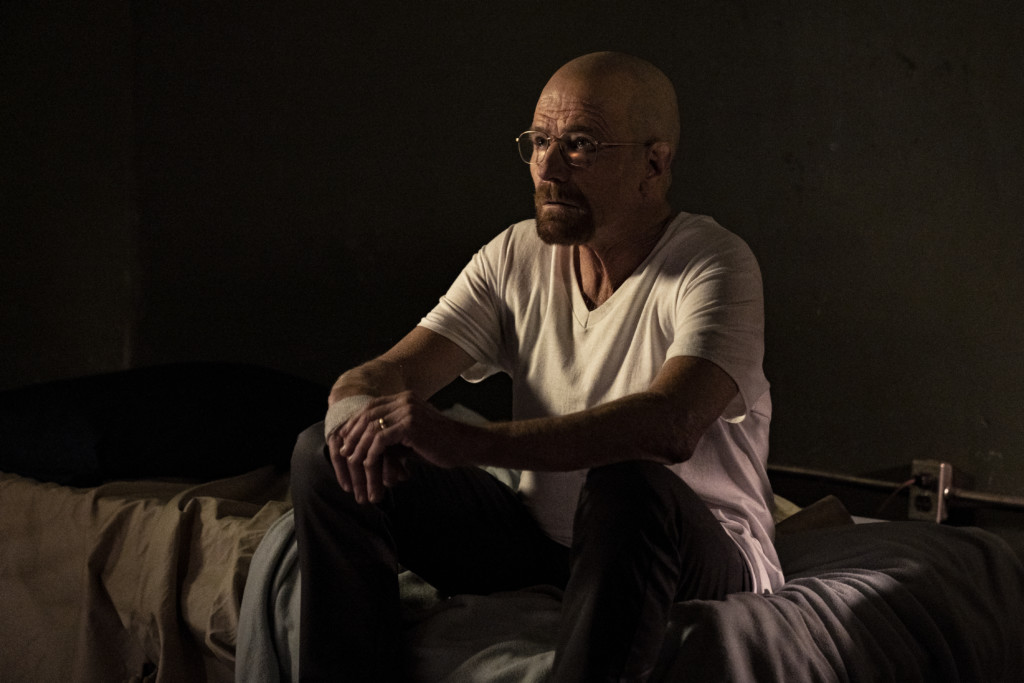
Before we get to the bulk of the story for this episode, we have to talk about the numerous flashbacks that all circle around a central theme about regret.
The episode actually opens with a callback to season 5, episode 8 when Jimmy McGill and Mike Ehrmantraut are left wandering the desert in search of civilization after a gun battle that could have easily ended with one or both of them dead. Instead, Jimmy had to walk dozens of miles under a scorching New Mexico son while carrying $7 million of Lalo Salamanca’s money and drinking his own pee to survive.
Along the way, Jimmy happens to run across a water well that gives him a brief reprieve from the thirst and exhaustion that had long since washed over him. As he sat hunkered near that well, still absorbing the water that was replenishing his body, Jimmy wondered why he and Mike didn’t just take the money, split it between themselves and then disappear where no one would ever find them again.
Despite all the terrible things he’s done, Mike couldn’t bring himself to cross his client — in this case Gus Fring — but Jimmy still couldn’t help but wonder what they could do with all that money. Like for instance what about building a time machine that would allow them to go back to fix something from their past.
In his own theoretical situation, Mike admits that he would go back to the day he accepted his first bribe as a cop. That’s the moment Mike’s morals were fully compromised and that eventually led to his son Matty walking down the same road as his old man before he was killed. The death of Mike’s son is what led him out of Philadelphia and out to New Mexico with hopes that he could form a bond with his daughter-in-law and granddaughter as the last thread that still connected him to his only child.
As for Jimmy, his time travel scheme didn’t offer him any sort of repentance or even a chance to turn a wrong into a right. Instead, Jimmy says he would travel back to the day Warren Buffet started his company, he’d invest a million dollars and then when he returned to present day, James Morgan McGill would be a billionaire — or maybe even a trillionaire, if that’s such a thing.
“Money?” is Mike’s only response after sharing a deeply personal moment with Jimmy only to discover the morally corrupt lawyer didn’t care about anything but getting rich.
Going back even further the finale then revisits a moment from early in the series when Jimmy was taking care of his brother Chuck, who was stricken by a mental health disorder that made him believe he was allergic to all forms of electricity. In those days, Jimmy would hand deliver groceries and supplies to his brother, all while attempting to get his own law practice off the ground.
Even then Chuck couldn’t understand why his brother was going out of his way to personally take care of this for him, especially knowing that a law clerk from HHM would certainly do the same at no cost. Still, Jimmy took it as a personal responsibility to care for his brother but he also shoots down a request from Chuck to stay and chat about his cases when offered the opportunity.
Jimmy doesn’t believe his brother would have any interest in hearing about the cascade of low life criminals he’s resorting to represent but in that moment, Chuck appeared to be showing a genuine interest in his well being. Hearing the discontent in his brother’s voice, Chuck even reminds Jimmy that he can alter the course he’s on because that’s the only way he’ll ever reach a different destination.
Jimmy largely shucks off his brother’s advice before leaving but you can’t help but wonder if that moment might really be his biggest regret because it was a chance to actually connect with Chuck yet he passed.
Finally, the flashback brings us to the moment in the “Breaking Bad” episode titled “Granite State” when Saul Goodman and Walter White were briefly occupying an underground bunker together while the Disappearer was coordinating new identities for both of them to escape capture from law enforcement. This features a second cameo from Bryan Cranston reprising his Emmy winning role one last time.
As Walter was vexed about a noisy water heater, Saul posed a similar question to him about the time machine and what he would go back to change if possible. Ever the scientist, Walt lashes out because he knows time travel as Saul suggests it, can’t actually exist — but he concedes if this is really an exercise discussing regret, then he can play along.
That’s when Walt tells Saul about the business he once founded with his college friends Elliott and Gretchen that eventually became a billion dollar corporation. Much like everything that happened throughout the course of “Breaking Bad,” Walt blamed everybody else for his problems — this time claiming that Elliott had stolen his brilliant ideas, forced him out of the company and then went onto make more money than he could spend in 10 lifetimes.
Walt negates his part in how all of that unfolded while also completely discounting Elliott’s own contributions in the science that helped found the company. That brief story really just sums up Walter White as a character, which was a confession he finally made in the “Breaking Bad” finale when he came clean to Skyler by admitting that he didn’t become a drug kingpin for the altruistic reason to care for his family but rather it’s because he wanted to do it.
Walt wanted to taste the power and the privilege that came along with building his empire.
It took until his last days to finally realize that all of the misery that had been visited upon his family and loved ones was completely Walt’s fault.
But on this occasion, stuck in a bunker, awaiting a new identity to escape capture and prosecution, Walt could only sing about the ways he had been wronged. Saul then bursts out about how he could have helped Walt sue the company for wrongful termination or theft of intellectual property but Walt can only scowl back because there’s no way he would seek out his legal services for a case like this
As for Saul, he tells Walt that he would like to return to a time when he was a young 20 something pulling the old “slip and fall” scam that ended with him actually being injured, which in turn gave him a bum knee that continued to haunt him for years to come. Once again, Walt stares back at discontent for his attorney while saying “so you’ve always been like this?”
It’s just further proof even as both of them await help to escape capture from the authorities that Walt looks at Saul with such disdain, not to mention still considering himself better even if he’s done far, far worse.
All told, Jimmy McGill and eventually his alter ego Saul Goodman have both been filled with regrets and surrounded by people who could only serve to remind him of those many failures.
Saul Over Now
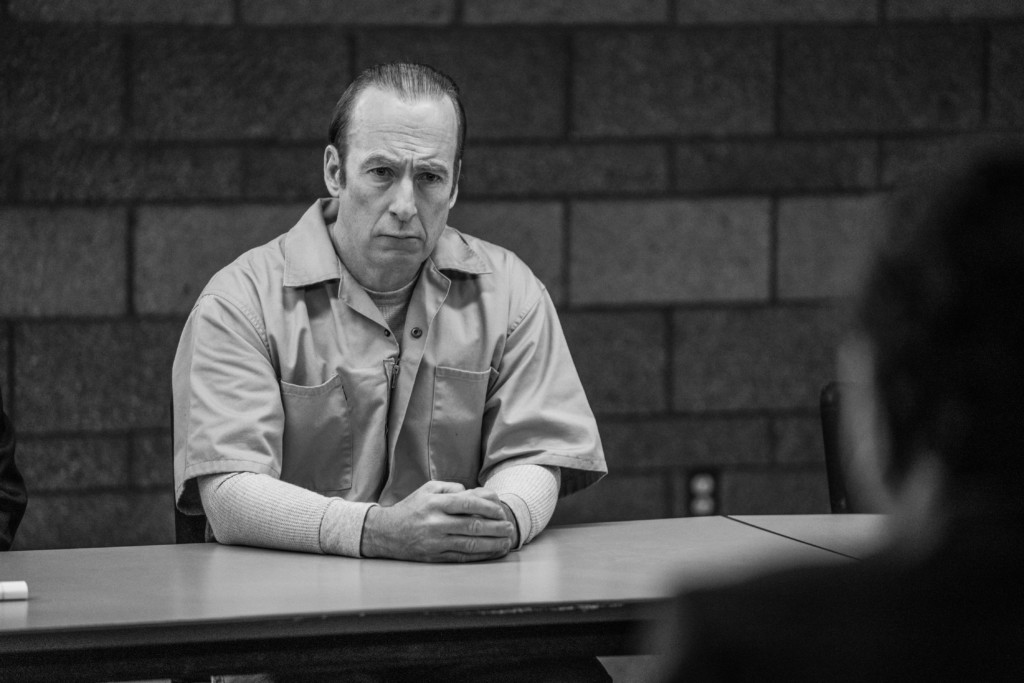
Back in the present day, Gene Takavic realizes that he’s been exposed after Marion (Carol Burnett) realized his true identity and called the authorities on him. For the briefest of moments, Gene — with a telephone cord in hand — thought about silencing the elderly woman from telling anybody that she was standing in the kitchen with Saul Goodman but he eventually relented while essentially allowing her to call for help.
Despite his best attempts to flee, Gene ends up stuck in a dumpster dropping the Band-Aid case filled with diamonds after he’s unable to open a burner phone to call the Disappearer to help him escape capture yet again. Instead covered in slime and god knows what else, Gene stands up with his hands raised as police corner him in the dumpster and place him under arrest.
In jail, Gene has once again transformed back to Saul Goodman as the police watch his commercials in an adjacent room as he begins to realize the true gravity of his situation. With his one call, Saul actually phones the Cinnabon to let his employees know that he won’t be coming in today — or ever again so it’s probably best to call corporate to let them know the Omaha location will need a new manager.
As the frustration and anger mounts over his arrest, Saul eventually asks for another phone call and this time he reaches out to his old pal Bill Oakley — the former prosecutor from Albuquerque who essentially took over his business as a defense attorney for hire with bus bench ads all over New Mexico.
Saul needs to mount his defense because the authorities have him dead to rights on dozens of felonies from drug running to money laundering not to mention being an accessory to the murder of two Federal agents who were killed and buried in the middle of the desert. As Saul gets hauled in to speak with the U.S. district attorneys who will try his case, he spots Marie Schrader in a room nearby.
She’s come to seek justice done against one of the only people still alive who can pay for her husband’s tragic death.
Rather than speak to the authorities on his own, Saul actually asks if Marie can join him in the room.
When Marie enters, she gives a painful account about the loss her husband Hank, who was the best man she’s ever known. She also reminds Saul about Hank’s partner Steve Gomez and the wife and children he left behind after he was murdered as well.
In response, Saul chokes back his own tears before explaining how he got into bed with Walter White after he was kidnapped, held at gunpoint and threatened over an open grave after he refused to take a bribe to represent Brandon “Badger” Mayhew. Saul paints himself as an unwilling victim who was tormented by Walter White under the threat of death if he turned against the drug kingpin.
The sorrowful tale of woe has the prosecutors rolling their eyes but then Saul reminds everybody that it only takes one juror to believe his story and he’ll walk out a free man. The sobering reality of Saul’s statement hits so close to home that the prosecutors are forced to strike a deal so they can get some sort of conviction out of this case where nobody has actually been punished.
In the end, Saul agrees to a seven year prison sentence in a cushy Federal lockup where there’s actually a golf program. Much to Marie’s disdain, she watches as the slick talking attorney once again skirts past paying for his crimes because the prosecutors don’t believe the can actually get a full conviction at trial.
Just when it looks like a deal has been struck, Saul attempts to negotiate for one final nicety to add to his prison sentence — a pint of mint chocolate chip ice cream that will be delivered to him every Friday while he’s serving time behind bars. To sweeten the deal, Saul offers up details about the death of prominent attorney Howard Hamlin but that’s when he learns the truth about what his ex-wife did just a few weeks earlier.
The prosecutors reveal that Kim Wexler went back to Albuquerque, signed a sworn affidavit confessing to her part in the scheme that led to Howard Hamlin’s death. While there’s no physical evidence to prove what she’s said, Kim has now set herself up for a blockbuster lawsuit from Howard’s widow, Cheryl Hamlin.
Saul is stunned to learn this news but he doesn’t get much time to consider what just happened because he’s soon boarding a plane for extradition back to New Mexico.
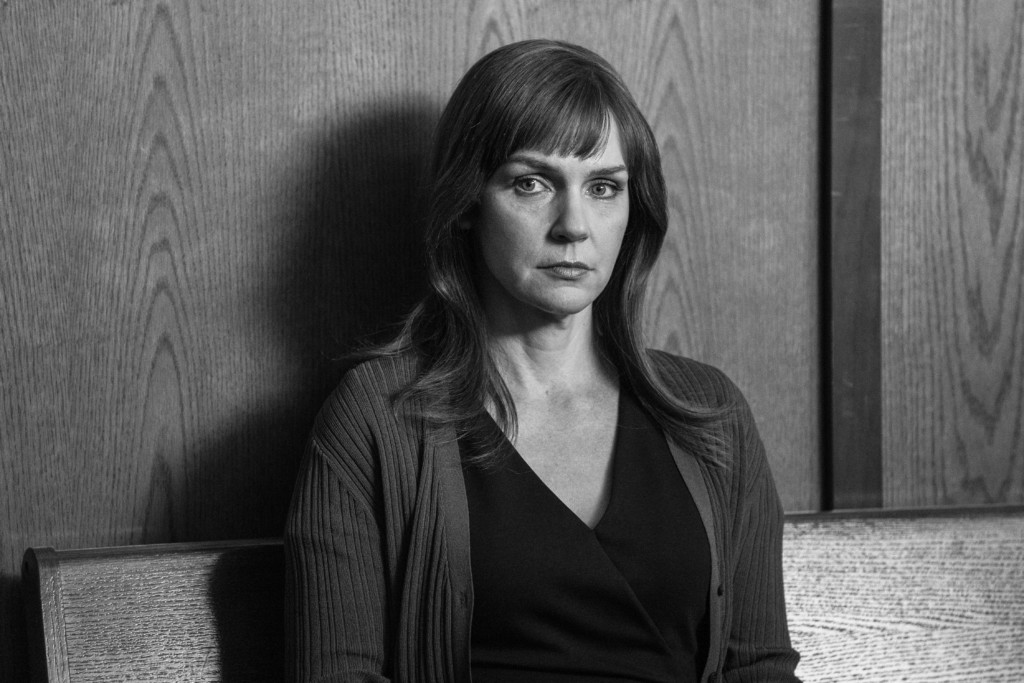
It’s on that flight that Saul speaks to his attorney about more details that could further condemn Kim for her part in Howard’s death. At the time it seemed like Saul was just lashing out to punish Kim for actually coming clean after he challenged her to confess during their brief conversation on the phone while he was still “Gene Takavic” in Omaha.
At court, Saul arrives in a shiny suit that shimmer so much you can actually see that happening through the black and white imagery that’s captured every moment in this post “Breaking Bad” part of the story. As the judge laments this cupcake sentence that the prosecutors can’t help but swallow, Saul asks for a moment to speak before the court.
Because he’s technically representing himself with Bill serving as advisory counsel, Saul stands tall and begins to tell that same story of woe about his initial interaction with Walter White but this time he actually reveals the truth. As much as Saul was actually scared after he was kidnapped and threatened with a gun over an open grave, he soon began to realize the potential he had standing in front of him with a high school science teacher turned meth cook.
Saul admits that without his advice and help, Walt would have likely been captured or killed within months of that initial interaction. Instead the next 16 months saw Walt transform himself into a drug kingpin worth hundreds of millions of dollars before it all went wrong and he ended up watching his brother-in-law get murdered with almost all of that money being stolen from him by a group of Nazis.
Even with Bill pleading with him to stop talking, Saul goes under oath while admitted to his part in Walter White’s crimes and how he was far more than some unwilling accomplice. Instead, Saul confesses that he was integral in Walt’s business and by extension at least partially responsible for all of the people who were hurt or killed during his reign of terror.
“Walter White couldn’t have done it without me.”
At times, Saul looks back at Kim, who sat in the back of the courtroom as she watched all of this unfold.
Saul even takes responsibility for Howard Hamlin’s demise not to mention his part in the actions that led to his brother Chuck taking his own life. While these aren’t crimes where he will be punished, Saul finally wanted to confess to everything he had done wrong — a whole lifetime’s worth — as he attempted to repent before being sent off to prison.
In the end, Saul informs the judge that he wants to be sentenced under his real name — he’s standing tall before the court as James Morgan McGill.
Ultimately, Jimmy gets 86 years behind bars — enough time where he will surely die in prison — and he’s shipped off to the exact facility he was desperately trying to avoid. On the bus ride to prison some of the fellow inmates recognize him and actually begin chanting “better call Saul” because they realize he’s an attorney who would actually pull whatever strings necessary to keep them out of this exact situation.
As time passes, we then catch up with Jimmy serving his time in prison where he’s started working in the kitchen. These days, Jimmy is baking bread — a skill he undoubtedly picked up at Cinnabon — and he’s ingratiated himself with his fellow inmates as they all fist bump him when walking by.
Jimmy gets called away from his duties after being informed that his lawyer is there to pay him a visit.
When Jimmy gets to the meeting room, he’s stunned to see Kim standing there waiting for him. She’s still rocking the brunette hair but Kim has dressed up from the drab skirts and white shoes she was wearing in Florida while working at a sprinkler company.
Kim admits that she got into the prison under false pretenses because it turns out her New Mexico bar card doesn’t actually have an expiration date on it. One last minor scam that will allow Kim to spend a few moments with her wayward ex-husband.
While she hasn’t returned to the law, Kim did start volunteering at a pro bono law firm where she can start pitching in again for those who need help the most.
But visiting Jimmy in prison, Kim can only stare back at the only man she may have ever truly loved. She admits that she was impressed that Jimmy talked the prosecutors down to just over seven years in prison but he ultimately exchanged that for an 86 year sentence.
As they share a cigarette together just like the old days, Jimmy jokes that maybe he’ll get out earlier with good behavior. Not much else is said outside of Jimmy and Kim staring back at each other, perhaps wondering where they’d be right now if they had never met or perhaps if they had never split apart.
In the end, Kim leaves the prison but she catches one last glance from Jimmy, separated by fences and barbed wire, as she looks back and he gives her a final finger gun salute as they say goodbye forever. The scene fades to black as Jimmy McGill’s story comes to a close.
The end of “Better Call Saul” comes in a much quieter and far more subdued way than “Breaking Bad” but that also speaks to the vastly different ways these shows operated despite sharing so many of the same characters. There is now closure for everything that unfolded between the two series with Walter White dead, Jesse Pinkman living free in Alaska and Saul Goodman paying for his crimes behind bars.
With that, “Better Call Saul” is over and we say goodbye to these characters for the last time.
Thanks to all the readers tuning in each and every week over the past six seasons for our “Better Call Saul” recaps!


